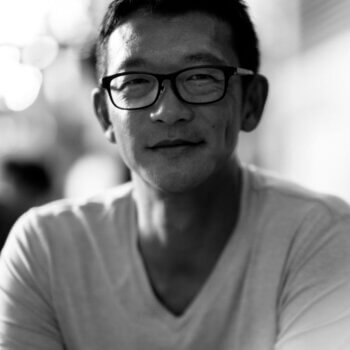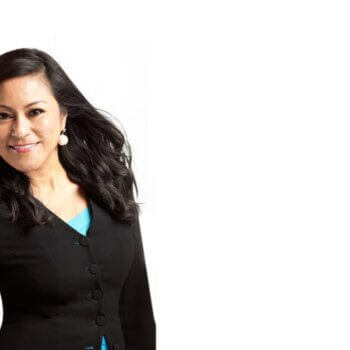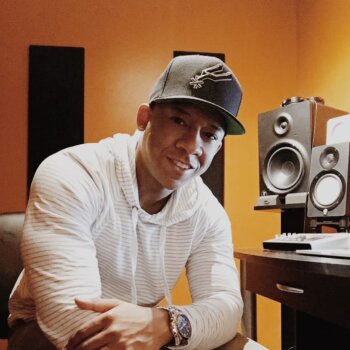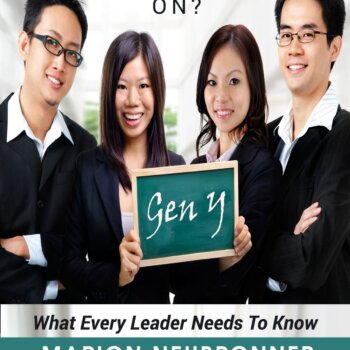Curiosity led Jayden to enrol in video production courses and eventually start his own business creating well-executed corporate videos.
What’s your story?
I started my career in the media industry as a child actor in kids’ TV dramas, sitcoms and other TV programmes for about 8 years since age 10 before enlisting into National Service. Though I got really used to being in front of the camera, I was more intrigued by what was happening behind the camera. The complexity, need to mish-mash various talents and stringing it all together into a compelling story drove my curiosity.
I began drafting scripts during my free time in National Service, enrolled in courses on video production and began freelancing to produce corporate videos for small companies. Fast forward a couple of years in, my partner Eugene and I started Motionsauce, a video production and animation studio in Singapore serving organisations like Great Eastern, Cisco and more.
What excites you most about your industry?
A large part of putting together a riveting video story is to intimately understand the client’s business, goals and industry. Having a diploma and degree in business and law, I found myself a lot better placed versus general creatives to understand briefs on a strategic level, and not just to produce an aesthetically pleasing video.
What keeps me motivated every day is that we’re making an impact on helping clients from different industries and departments through video. More recently, we developed a series of GIFs for SCDF (Singapore Civil Defence Force) meant to be used during emergency situations to save lives. These videos teach the viewer how to perform certain manoeuvres like CPR in time-sensitive moments.
Before that, we got to create a marketing video for Gush! Paints – a Singapore-based company producing revolutionary paint that purifies the air averaging 90,000 views on Youtube.
Having a variety of different projects and clients help avoid work getting mundane or repetitive as we also get to gain special access to typically inaccessible places like clean rooms, engineering labs, and amazing offices too.
What’s your connection to Asia?
I was born in Singapore and have lived here all my life. My mother, however, is originally from Chiangrai, Thailand, so I also visit there a lot.
Getting my degree in Melbourne, Australia, the non-Singaporean and Australian friends I made were mostly originally from China, Hongkong, Indonesia and Malaysia.
It’s no surprise that we hit it off through our taste in food, culture and general connection to the region. I’ve found no difficulty in working with people in and out of Asia.

Favourite city in Asia for business and why?
Definitely Singapore.
Firstly, the infrastructure here is unmatched. The accessibility, telecommunications, buildings and even transport services in Singapore are well suited for the digital age. We need speed.
Internet speeds and travel time in Singapore are fast enough for our day-to-day business and we haven’t even utilised them to the fullest yet. In our work, transferring large video files have proven to be a challenge for us in some neighbouring countries due to upload/download speeds.
Secondly, Singapore is largely safe. We’ve heard stories from friends in other parts of Asia where competing companies can turn up with guns or generally choose to conduct business in unscrupulous ways to stifle competition. In Singapore, we have a strong legal system and enforce it strictly. Payments are generally collectable and we can do business in peace.
What’s the best piece of advice you ever received?
Respond to a situation, not react.
This was shared during a Dharmma talk by Bhante Buddharakkhita when I was studying in Melbourne. This advice has stayed with me till now and serves as a reminder every time I’m dealt with a stressful situation.
There will be instances in our case where the client might not always see eye to eye with our creative output.
Especially in projects where there are multiple stakeholders, it becomes even more challenging to get definitive buy-in for our ideas. Sometimes, clients can return to say that they want a complete overhaul in an idea they initially agreed to.
In those instances, we always discuss our course of action internally to avoid acting impulsively. When we communicate in a genuine manner, we tend to be able to find common ground with good clients and still produce an excellent video.
Who inspires you?
My parents. My father was Chinese-educated and did not have a chance to go to University. Throughout his life, his wit and hard work are what brought food to our table at home.
When he was about 50, he had to take an exam to be a Property Agent though he was not well-versed in the English language.
I would see him spend countless nights painstakingly translating each paragraph in his notes with a Mandarin-English dictionary leading up to the exams.
Whenever I think of complaining when work gets hard, I recall those moments and realise the fact that few challenges are insurmountable.
My mother, came to Singapore from Thailand with no formal education, unable to speak a word of English, Mandarin or Hokkien. Decades later, she has worked as a Clinic Assistant for over 10 years helping migrant workers with their medical checkups.
I believe it’s how well she balances work and family responsibilities that I constantly remind myself to always leave time for my family and not use work as an excuse. It’s also how she treats people with respect and empathy that reminds me to do the same to others.
What have you just learnt recently that blew you away?
I chanced upon an article on Mothership about a Japanese restaurant called Misato. In the interview, the self-taught chef and restaurant owner has incurred losses of over 2.2 million dollars and still insists on importing all his ingredients from Japan. When he talked about the possibility of folding his business, interestingly, it was not about staff shortages or financial strain. Instead, he will fold his business if he feels that his food quality drops.
It is this kind of conviction and dedication that I see in a fellow entrepreneur who is suffering from depression that reminds me of why I started doing what I’m doing.
If you had your time again, what would you do differently?
To be honest, I would not have done anything differently because I believe it’s what I have been through that made me who I am today. I’ve never asked, “Why did this have to happen to me?”. Instead, my personal ethos is to take things as they come and learn to deal with it.
When I studied Buddhism during my time in Melbourne, I learned that nothing is permanent, and the only constant is change. Instead of looking back at how I would do things differently, I would rather stay in the present and be prepared for what’s next.
How do you unwind?
I have a penchant for karaoke with friends where I sing my heart out in the most dramatic way possible. I also enjoy binge-watching old Taiwanese variety sometimes as a distraction from my problems for a while.
If I feel down, I usually head to the beach at night. The sounds of the waves crashing, cool breeze and the endless horizon make me realise how small my problems are.

Favourite Asian destination for relaxation? Why?
My favourite Asian destination is a little village in Chiangrai where my mother’s family lives. The people, weather and food are fantastic. I’d wake up to the sound of roosters and the aroma of glutinous rice steamed in the kitchen.
Outside the hut is my childhood swing where I’d sit and play with dogs. On some days, I’d go to the temple to meditate and ride a bicycle to visit the neighbours to get free mangoes. It’s truly a carefree and relaxing place (if you don’t mind the dirt).
Everyone in business should read this book:
李嘉诚谈做人,做事,做生意,全集 Strategies of Business (ISBN: 978-986-6152-19-1)
This is a book that contains interviews, excerpts and stories from Mr. Lee Ka Shing, one of the richest men in Hong Kong pertaining to how he conducts himself in character, in various circumstances and in his career. As one of the wealthiest men in Asia, Mr. Lee’s experience and foresight that’s depicted in the stories compiled in this book provided me with relevant and deep insights as to how I should conduct myself as an entrepreneur.
Shameless plug for your business:
Motionsauce is a strategic video partner to innovative businesses that want to be seen, heard and understood by their customers and stakeholders. We provide corporate video production and animation services for best-in-class companies like Great Eastern, Oracle and startups like Gush!, DocDoc and more. Using our C3 storytelling methodology, we help clients put together narratives that convert sceptical prospects into customers.
How can people connect with you?
- LinkedIn: Jayden Soh
- Facebook: Jayden Soh Jun Xing
- Instagram: @mochajx or @motionsauce
—
This interview is part of the ‘Callum Connect’ series of more than 500 interviews

Callum Laing is an entrepreneur and investor based in Singapore. He has previously started, built and sold half a dozen businesses and is now a Partner at Unity-Group Private Equity and Co-Founder of The Marketing Group PLC. He is the author two best selling books ‘Progressive Partnerships’ and ‘Agglomerate’.
Connect with Callum here: twitter.com/laingcallum linkedin.com/in/callumlaing Download free copies of his books here: www.callumlaing.com





























